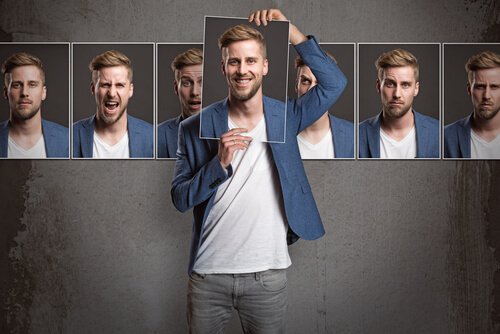Don't Expect People to Change for You


Written and verified by the psychologist Valeria Sabater
Expecting people to change for you is useless. This often happens in relationships where one person wants the other person to change for the better, behave properly, and love them the way they want them to. However, those expectations are rarely met.
Think about it. Believing someone will make a 180° and change their attitude and behavior leads to a dangerous and toxic emotional dependence. It’s like waiting for a miracle to happen. Believing them when they say things will change, the past is in the past and, then, surprise! You’ve fallen into their trap once again.
This type of situation is very common and normal. Waiting for someone to change for you because you love and trust them. Love can’t be love without trust. You’ll find yourself giving them many chances because maybe, this time, things will work out. You’re convinced that loving them will make them change for the better. Until, one day, you open your eyes and realize none of that will happen.
“A story has no beginning or end: arbitrarily one choose that moment of experience from which to look back or from which to look ahead.”
-Graham Greene-

Expecting others to change is frustrating
In psychology, the term personality is used to describe a series of somewhat stable traits. Thus, if someone is shy and introverted, it’ll be hard for them to be extroverted all of a sudden. Now, showing a clear tendency in their personality won’t keep people from changing this and adopting unnatural personality traits.
If humans didn’t believe in changes, psychology would be useless. Besides changing things about others, people can also improve themselves and change their mentality and behavior.
Doctor Walter Roberts from the University of Illinois conducted a study where he discovered that change, as it is, is more likely to happen in a psychotherapeutic environment. This means that when a person is aware that there’s a problem to be dealt with, medical intervention can help them and cause possible personality changes.

Is it right to expect people to change?
You always expect people to change for the better. This hope is also present in families, or when parents are raising their children. When children don’t behave as expected, parents make a few corrections and tell them that people want them to be respectful and responsible, for example.
The same goes for education. After all, education is about guidance, suggestions, dialogues, setting a good example, and going down a better path than our parents. Now, when you reach adulthood, your personality is pretty much set. Thus, if you don’t have the will to do it, you won’t change.
This is why you may find your partner exhibits traits you don’t like. You need to accept the good and the bad. Flaws, hobbies, and singularities are what make people who they are. Thus, trying to change people isn’t always the best idea.
Also, some situations may become more serious. For example, being abusive, despicable, and deceitful shouldn’t be allowed at any time. This behavior calls for a necessary change.
You get hurt and they won’t change. What can you do?
In John Gottman’s The Seven Principles for Making Marriage Work, there’s an important statement. Love goes above and beyond acceptance; it’s appreciating others for what they are and vice-versa. If you find harmful behaviors, or what Gottman defined as the Four Horsemen of the Apocalypse (criticism, contempt, defensiveness, and stonewalling), that relationship will fail.
This is where changes are essential. It’s not about waiting for others to change for you, it’s about accepting there’s a problem. Because when people suffer, you need to change your attitudes and behavior so that your relationship doesn’t suffer.
In cases like the one above, one of two things will happen. On the one hand, the person won’t change and it’ll become a take it or leave it kind of situation. On the other hand, you’ll fall into an emotional and mental trap when you think that they’ll change for you, believing them when they say everything will be different and that whatever happened won’t happen again. However, it happens again and it usually gets worse.

What can you do if you find yourself in this turmoil? The answer is simple. If you’re unhappy and the other person won’t change their ways to make things better, then you need to change. Move forward and begin working on healing yourself.
Lastly, in these circumstances, you need to ask for expert help. Therapists, psychologists, and psychiatrists can prove really helpful in these cases.
Expecting people to change for you is useless. This often happens in relationships where one person wants the other person to change for the better, behave properly, and love them the way they want them to. However, those expectations are rarely met.
Think about it. Believing someone will make a 180° and change their attitude and behavior leads to a dangerous and toxic emotional dependence. It’s like waiting for a miracle to happen. Believing them when they say things will change, the past is in the past and, then, surprise! You’ve fallen into their trap once again.
This type of situation is very common and normal. Waiting for someone to change for you because you love and trust them. Love can’t be love without trust. You’ll find yourself giving them many chances because maybe, this time, things will work out. You’re convinced that loving them will make them change for the better. Until, one day, you open your eyes and realize none of that will happen.
“A story has no beginning or end: arbitrarily one choose that moment of experience from which to look back or from which to look ahead.”
-Graham Greene-

Expecting others to change is frustrating
In psychology, the term personality is used to describe a series of somewhat stable traits. Thus, if someone is shy and introverted, it’ll be hard for them to be extroverted all of a sudden. Now, showing a clear tendency in their personality won’t keep people from changing this and adopting unnatural personality traits.
If humans didn’t believe in changes, psychology would be useless. Besides changing things about others, people can also improve themselves and change their mentality and behavior.
Doctor Walter Roberts from the University of Illinois conducted a study where he discovered that change, as it is, is more likely to happen in a psychotherapeutic environment. This means that when a person is aware that there’s a problem to be dealt with, medical intervention can help them and cause possible personality changes.

Is it right to expect people to change?
You always expect people to change for the better. This hope is also present in families, or when parents are raising their children. When children don’t behave as expected, parents make a few corrections and tell them that people want them to be respectful and responsible, for example.
The same goes for education. After all, education is about guidance, suggestions, dialogues, setting a good example, and going down a better path than our parents. Now, when you reach adulthood, your personality is pretty much set. Thus, if you don’t have the will to do it, you won’t change.
This is why you may find your partner exhibits traits you don’t like. You need to accept the good and the bad. Flaws, hobbies, and singularities are what make people who they are. Thus, trying to change people isn’t always the best idea.
Also, some situations may become more serious. For example, being abusive, despicable, and deceitful shouldn’t be allowed at any time. This behavior calls for a necessary change.
You get hurt and they won’t change. What can you do?
In John Gottman’s The Seven Principles for Making Marriage Work, there’s an important statement. Love goes above and beyond acceptance; it’s appreciating others for what they are and vice-versa. If you find harmful behaviors, or what Gottman defined as the Four Horsemen of the Apocalypse (criticism, contempt, defensiveness, and stonewalling), that relationship will fail.
This is where changes are essential. It’s not about waiting for others to change for you, it’s about accepting there’s a problem. Because when people suffer, you need to change your attitudes and behavior so that your relationship doesn’t suffer.
In cases like the one above, one of two things will happen. On the one hand, the person won’t change and it’ll become a take it or leave it kind of situation. On the other hand, you’ll fall into an emotional and mental trap when you think that they’ll change for you, believing them when they say everything will be different and that whatever happened won’t happen again. However, it happens again and it usually gets worse.

What can you do if you find yourself in this turmoil? The answer is simple. If you’re unhappy and the other person won’t change their ways to make things better, then you need to change. Move forward and begin working on healing yourself.
Lastly, in these circumstances, you need to ask for expert help. Therapists, psychologists, and psychiatrists can prove really helpful in these cases.
All cited sources were thoroughly reviewed by our team to ensure their quality, reliability, currency, and validity. The bibliography of this article was considered reliable and of academic or scientific accuracy.
- Roberts, B. W., Luo, J., Briley, D. A., Chow, P. I., Su, R., & Hill, P. L. (2017, January 5). A systematic review of personality trait change through intervention. Psychological Bulletin. Advance online publication. doi:10.1037/bul0000088
This text is provided for informational purposes only and does not replace consultation with a professional. If in doubt, consult your specialist.







